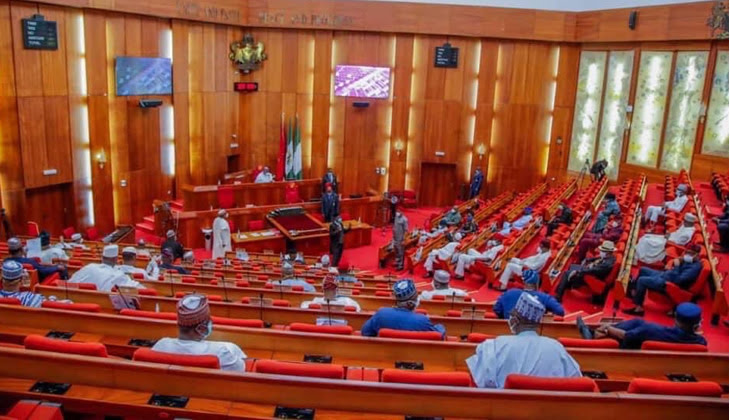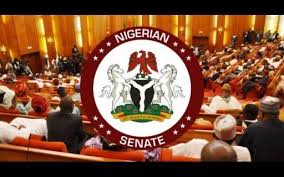
The Senate, on Thursday, took a historic legislative step toward reforming Nigeria’s military justice system, passing for second reading, a bill seeking to repeal and re-enact the Armed Forces Act to make it constitutionally compliant, democratically accountable, and operationally modern.
The proposed legislation, titled: “A Bill for an Act to Repeal the Armed Forces Act and to Re-enact a Modern, Constitutionally Compliant and Operationally Responsive Legal Framework for the Armed Forces of the Federal Republic of Nigeria, and for Related Matters, 2025,” was sponsored by Chairman of the Senate Committee on Army, Senator Abdulaziz Musa Yar’adua, APC, Katsina Central.
The bill proposed far-reaching reforms to the Nigerian Armed Forces, including a key provision that would make convictions handed down by military tribunals subject to judicial review by civil courts, a move hailed by lawmakers as critical to ensuring fairness, transparency, and adherence to constitutional principles.
Leading debate on the general principles of the bill, Yar’Adua said the existing Armed Forces Act, originally derived from military decrees of the 1960s and last consolidated in 2004, was outdated and incompatible with Nigeria’s democratic framework and evolving security environment.
He said, “The Armed Forces of Nigeria remain the cornerstone of our sovereignty and national security.
“They have stood gallantly in defence of our nation, from combating insurgency and terrorism to peacekeeping missions across Africa. However, our military law has not kept pace with the evolving defence environment.”
Yar’adua explained that the proposed law would align military governance with constitutional norms and international best practices while introducing reforms to disciplinary procedures, operational structures, and welfare provisions.
He said obsolete penalties such as N200 and N500 fines would be replaced with percentage-based sanctions tied to officers’ salaries, while non-commissioned officers would enjoy expanded rights and fair hearing protections.
“The bill also seeks to criminalise undue command interference in courts-martial, ensuring the independence and integrity of the military justice system,” he said.
In one of the most striking interventions of the debate, Senator Tahir Monguno, APC, Borno North, underscored the constitutional significance of the proposed judicial review of military tribunal decisions.
According to him, the current system, which allowed boards of inquiry and military authorities to serve as both investigators and adjudicators, violates fundamental legal principles.
Monguno said, “This bill seeks to bring our military laws in tandem with international best practices and under the control of democratically elected institutions.
“To bring it in consonance with universally acceptable democratic principles, it introduces the right of fair hearing and judicial oversight.”
Senator Ali Ndume, APC, Borno South, described the proposed law as “long overdue,” saying Nigeria’s military justice system needed to evolve alongside the country’s democracy.
“As we advance in our democracy, it is necessary to align our Armed Forces with modern laws that reflect transparency and professionalism,” Ndume said.
Similarly, Senator Sampson Ekong, APC, Akwa Ibom South, called the proposal a “profound reform initiative” that would deepen defence policy and reinforce professionalism within the Armed Forces.
“This is not just a legal reform; it’s a structural reform that strengthens accountability and ensures that discipline and justice coexist in our Armed Forces,” Ekong added.
Presiding, Deputy Senate President, Jibrin Barau, commended the bill’s objectives and said the effort should serve as a model for reform across Nigeria’s governance sectors.
“Our laws should evolve with the times. This effort to modernise the legal framework for the Armed Forces should be a model for reforms across all sectors of our national life,” Barau said.
The Senate subsequently referred the bill to its Committees on Defence, Army, Air Force, and Navy for further legislative scrutiny, with a directive to report back within four weeks.
Sunday Aborisade



